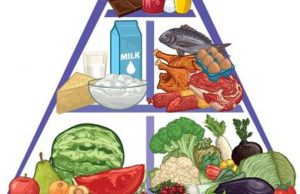How Food Additives Affect Food Safety


Most health experts advise against consuming processed foods because these foodstuffs are loaded with a cocktail of additives that are toxic to human health. Food additive refers to a chemical added to the food during preparation or storage to achieve a specific technical effect. These effects may include lengthier shelf life, improved color, or enhanced flavors. Below are the most common food additives used by the food industry and how each one affects food safety:
Artificial Sweeteners
Artificial sweeteners are sweetening agents commonly used in diet or sugar-free foods and beverages. These chemicals are used to sweeten a certain food without contributing to the overall caloric content of said food.
Aspartame or E951 is the most popular of all artificial sweeteners. This compound is a cancer-causing chemical and a neurotoxin. Studies show that aspartame erodes intelligence, affects short-term memory and cause a mental breakdown. This compound is also linked to a disturbingly long list of ailments including brain cancer, lymphoma, diabetes, multiple sclerosis, Parkinson’s and Alzheimer’s disease.
High Fructose Corn Syrup or HFCS
HFCS is a refined artificial sweetener used to enhance the flavors of bread, canned goods, salad dressings, cereals, and flavored yogurt. Almost all processed foods contain HFCS, which is not a good thing at all. HFCS is not only fattening, it also increases bad cholesterol in the blood. Studies show that this chemical contributes to the development of tissue damage and diabetes.
Monosodium Glutamate or MSG
MSG is a type of seasoning made from amino acid. It is used to enhance the flavors of canned soups, chips, frozen entrees, and so on. MSG is also a common flavor enhancer at home and in restaurants. This artificial flavor enhancer is an excitotoxin. It aggravates the cells to the point of damage or death. Studies show that consuming foods high in excitotoxin affect the neurological pathways of the brain, causing mental problems and obesity.
Trans Fat
Of all the food additives you consume, trans fat is probably the most dangerous of all. Found in deep fried foods and junk foods, trans fat are made with either margarine or partially hydrogenated vegetable oils that have gone through a process called hydrogenation. Studies show that consuming foods high in trans-fat increases the risk of cardiovascular diseases, diabetes, inflammatory ailments and chronic diseases.
Food Dyes
Food dyes are commonly used as artificial colorings in fruit juices, sports drinks, sodas, baked products, and packed dinners. These dyes are meant to make processed foods attractive to consumers. Unfortunately, these chemicals are linked to behavioral ailments in children, low IQ, and certain types of cancer. Other dyes are completely banned in some countries because they are linked to chromosomal damage and brain-nerve transmission disruption.
BHA And BHT
Butylated hydroxyanisole (BHA) and butylated hydroxytoluene (BHT) are preservatives used in cereals, vegetable oils, potato chips, and chewing gum. These preservatives are meant to prolong shelf life, change the flavor or enhance the color of a certain food.
Lab tests show that BHA and BHT could cause neurological damage and increase the risk of cancer development. These compounds may also lead to behavioral problems in children.
Sulfur Dioxide (E220)
Sulfur dioxide or E220 is an additive used to enhance the color of raw fruits and vegetables. This chemical is banned in the US because it causes a number of chronic diseases and adverse reactions. These harmful effects include bronchial disorders (asthma, flushing, low blood pressure), cardiovascular problems, and anaphylactic shock. Sulfur dioxide is not recommended for consumption by children.





0 comments